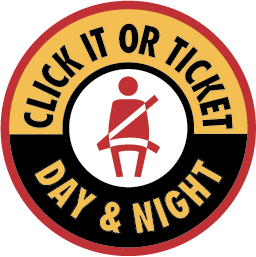High Visibility Enforcement
The goal of traffic enforcement is to change the public’s negative driving behaviors. High Visibility Enforcement educates the public on the agency’s traffic enforcement plans with the goal of voluntary compliance with traffic laws. The more often the public learns of enforcement activities, the more likely the positive driving behaviors become a habit.
To save lives and reduce injuries by preventing traffic crashes, BOTS, in partnership with NHTSA, sponsors campaigns that mobilize hundreds of law enforcement agencies throughout the state to increase motorists' compliance with traffic safety laws.
High-visibility law enforcement efforts are combined with effective media campaigns to get more motorists to buckle up, slow down and drive sober. Earned media and social media efforts are crucial ways to educate the public of the importance of traffic safety and enforcement details.
Law enforcement action kits

Drive Sober or Get Pulled Over campaign
Dcember 12 through January 1, 2026
Law Enforcement Action Kit materials for participating agencies:
For more information:
Impaired driving prevention

Click It or Ticket mobilization for seat belt enforcement
May 19 through June 1, 2025
Law Enforcement Action Kit materials for participating agencies:
For more information:
Seat belt safety
Additional resources
NHTSA's
Traffic Safety Marketing page also provides materials on a variety of additional transportation safety topics. See the
calendar for recommended outreach timeframes.
Visit WisDOT's
Zero in Wisconsin website for traffic safety advertisements and educational information.